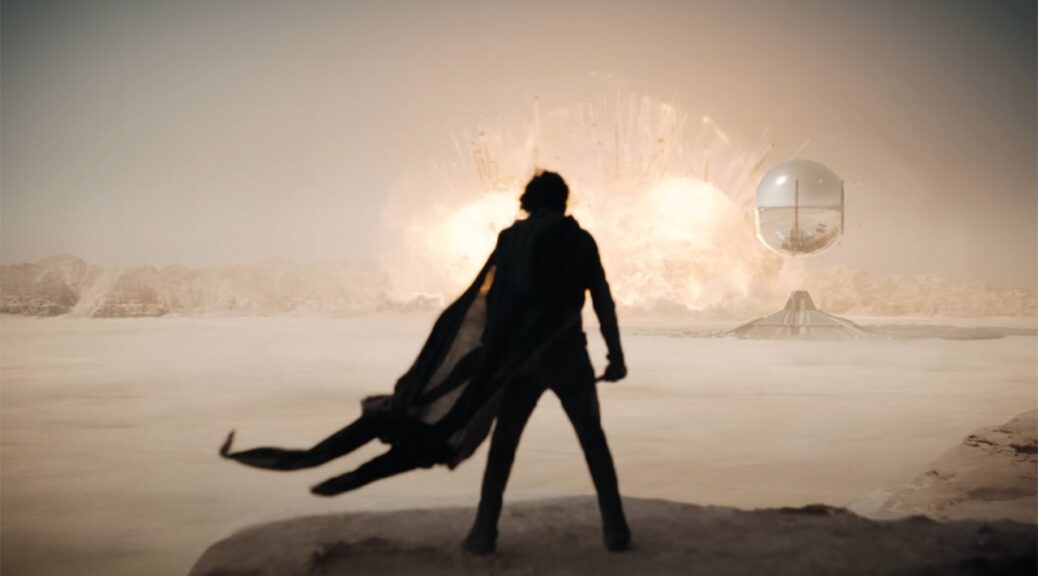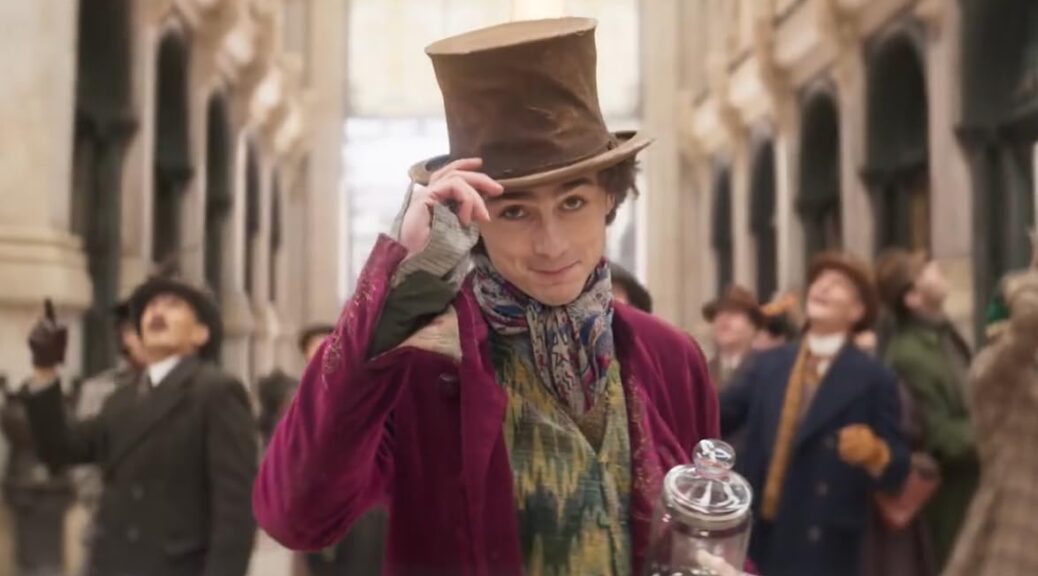Dune: Part Two
by Hope Madden and George Wolf
Never trust the white guy.
Is that the theme of Denis Villeneuve’s second installment of the Frank Herbert sci-fi epic? A colonizer twists religion to convince a huge population to act in their own worst interests? Sounds more like modern times, but maybe the blandly named Paul (Timothée Chalamet) really is The One.
Dune: Part Two is as breathtaking a vision as Villeneuve’s 2021 Part One. And it’s a better film, benefitting immeasurably from the freedom of exposition that weighed down Part One. The sequel rides intensity and action from its opening segment.
Having taken refuge with his mother (Rebecca Ferguson, still the most interesting performance in the film) among the Fremen, Paul tries to understand his visions while fighting alongside Chani (Zendaya), the woman he loves, to take back the spice-rich planet Arrakis from the evil and extremely pale Harkonnen.
Villeneuve’s world-building is again a wonder to behold. He immerses us in this world of sand and savagery, providing fully realized reminders of how much Herbert’s original vision has influenced iconic sci-fi tentpoles such as Mad Max and Star Wars.
And, in turn, this Dune isn’t shy about its own inspirations. From the conversion of Paul to the schemes behind the throne, from the cries of “false prophet!” to the bloodline surprises, Villeneuve and returning co-writer Jon Spaihts bob and weave the narrative through a fertile playground of Biblical and Shakespearean roots.
The ensemble is again large and mighty, sporting a litany of heavyweights (Javier Bardem, Florence Pugh, Josh Brolin, Charlotte Rampling, Christopher Walken, Léa Seydoux, Stellan Skarsgård, Austin Butler, Dave Bautista) who are all able to leave unique impressions amid the battle of screen time.
And that tells you how many characters are populating this adventure, because there is no shortage of screen time. But while Part Two‘s 2 hours and 45-minutes eclipse the first film, you’ll also find more meat on the bone. Yes, the second act does bog down a bit, but the finale sticks a damn fine landing. Overall, there’s just more earned tension, more thrills (get ready for the worms!) and more character arc to keep you invested in this fight.
Part Two also feels like the complete film that its predecessor did not, and it begins to pick the scab off that “white savior” issue, although we’ll need to get to Part Three to really do it justice. Even if there is not a third installment (and let’s be honest, there’s going to be), Dune: Part Two delivers a satisfying and complete adventure all its own.


